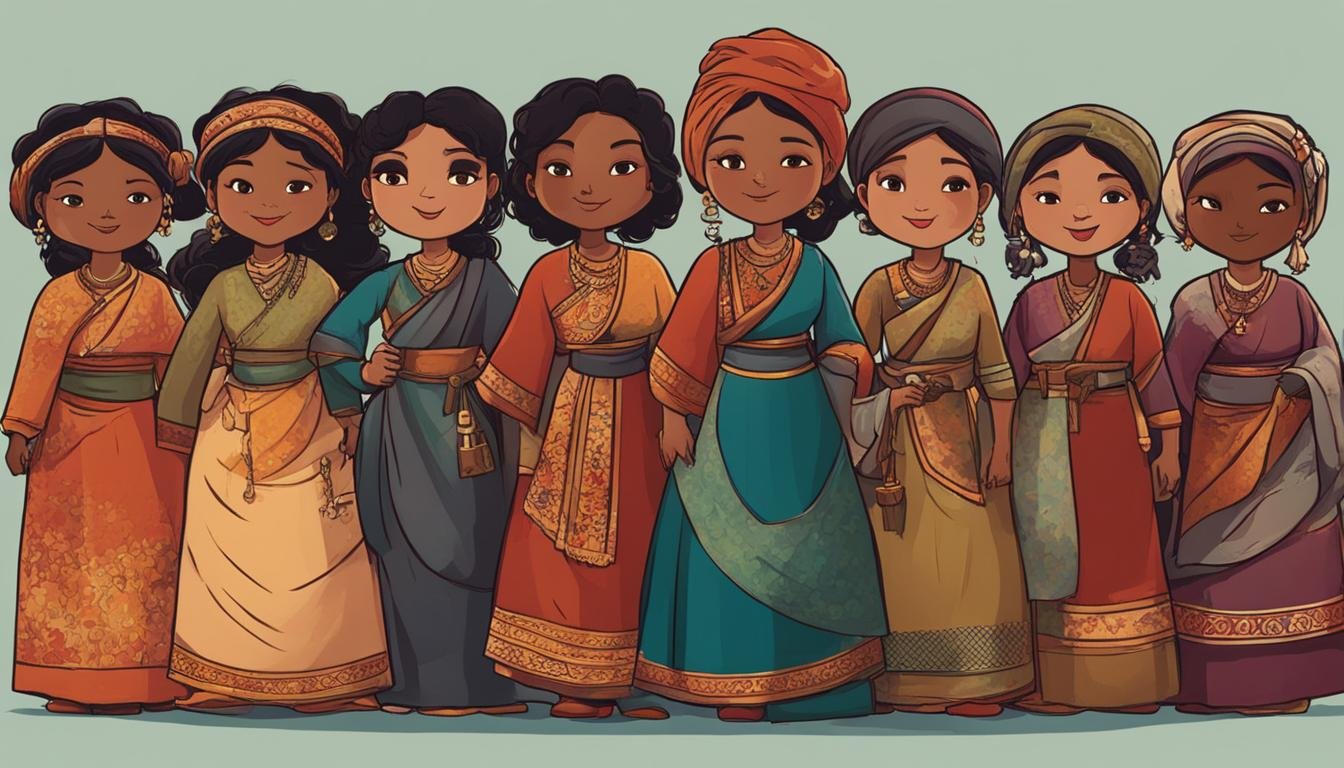The Bible is a rich source of wisdom, guidance, and stories that have shaped the lives of millions. Among the many characters and themes found throughout its pages, widows hold a significant place. These women, who have lost their husbands, are mentioned numerous times in both the Old and New Testaments, shedding light on their importance and the need to care for them.
With around 80 direct references to widows, the Scriptures underscore the significance of their role in Biblical times. They highlight God as the defender of widows, portraying His deep concern for their well-being. The compassionate actions of Jesus towards widows are also showcased, serving as examples of love and care for these vulnerable individuals.
Furthermore, the Bible provides instructions for the early church on how to treat and support widows. This underscores the ongoing importance of their inclusion and care within the community of believers. Understanding the role of widows in the Bible offers valuable insights into compassion, justice, and the responsibility of believers to care for the vulnerable among us.
Key Takeaways:
- Widows are mentioned approximately 80 times in the Bible, highlighting their significance in Scripture.
- The Bible portrays God as the defender of widows, emphasizing His concern for their well-being.
- Jesus exemplifies compassion towards widows, demonstrating the importance of practical care and support.
- The early church had a specific ministry dedicated to caring for widows, further highlighting their importance in the Christian community.
- Understanding the significance of widows in the Bible provides valuable lessons on compassion, justice, and the responsibility of believers to care for the vulnerable.
The Biblical Perspective on Widows
In the Bible, widows hold a significant place, with God portrayed as deeply concerned for their well-being. Scriptures highlight God’s role as a defender of widows, emphasizing His compassion and care for them. Jesus himself exemplified this compassion by taking care of His own widowed mother and performing miracles for widows, such as raising a widow’s son from the dead.
One of the prominent verses showcasing God’s concern for widows is found in Psalm 68:5, which states, “Father of the fatherless and protector of widows is God in his holy habitation.” This passage highlights the divine role of God in providing protection and support for vulnerable individuals, including widows.
“Father of the fatherless and protector of widows is God in his holy habitation.” – Psalm 68:5
Furthermore, the Bible provides instructions to the church on how to imitate God’s example by caring for widows. The importance of this support is emphasized in James 1:27, which states, “Religion that is pure and undefiled before God the Father is this: to visit orphans and widows in their affliction.” The church is called to actively care for and support widows, displaying God’s love and compassion through practical acts of kindness.
Overall, the biblical perspective on widows highlights their significance and the need for compassionate care. The Scriptures present God as deeply concerned for widows and call believers to follow His example by providing support and inclusion for widows within the community of believers.
| Scripture | Key Message |
|---|---|
| Psalm 68:5 | God is the defender and protector of widows. |
| James 1:27 | The church is called to care for widows in their affliction. |
Widows in the Early Church
The early Christian community recognized the vulnerability of widows and established a dedicated ministry to care for them. Acts 6 provides a clear example of this emphasis, as seven individuals were appointed to oversee the distribution of food to widows. This act highlighted the importance of meeting the practical needs of widows within the church. The apostle Paul further addressed the topic of widows in his first letter to Timothy, providing guidelines for their care within the church context.
In 1 Timothy 5:3-16, Paul outlined the criteria for including widows in the church’s support system. He emphasized the responsibility of families to care for their widowed relatives, stating that if a widow had family members who could provide for her, the church should not burden itself with that responsibility. However, if a widow had no family or support system, the church was to prioritize her assistance. Paul also called for widows to meet certain qualifications, such as being of a certain age, having a reputation for good works, and being faithful to their commitment to serve Christ.
The early church’s focus on caring for widows highlighted the ongoing concern for their well-being within the Christian community. This ministry not only addressed practical needs but also reflected the biblical mandate to show compassion and support to those who were vulnerable. By prioritizing the care of widows, the early church set an example for future generations to follow, demonstrating the significance of providing for those in need and recognizing the valuable role widows played within the community of believers.
The Role of Widows in Acts and Timothy
“The ministry of caring for widows in the early church was a tangible expression of God’s love and concern for the vulnerable. It exemplified the teachings of Jesus and served as a practical way to demonstrate the values of compassion and community within the Christian faith.” – Biblical Scholar
| Criteria for Widows’ Support | Responsibility of Families | Qualifications for Widows |
|---|---|---|
| Support provided if widow has no family or means of financial assistance | Family members responsible for caring for widowed relatives | Age, reputation for good works, commitment to Christ |
| Church prioritizes assistance for widows without support | Church not burdened if widow has family support | – |
The early Christian community’s ministry to widows, as seen in the book of Acts and the instructions in 1 Timothy, serves as a powerful reminder of the ongoing importance of caring for the vulnerable. It teaches believers to emulate the example of Christ, who showed compassion and practical support to widows during his earthly ministry. By studying and understanding the early church’s approach to widows, modern Christians can learn valuable lessons in demonstrating love, justice, and inclusivity within their own communities.

Understanding the Significance of Widows in The Bible
Widows hold a profound significance in the Bible, representing a vulnerable segment of society that requires care and support. Across the scriptures, widows are portrayed as individuals in need, and their welfare becomes a priority. The divine concern for widows is evident, with God assuming the role of their defender. This emphasis highlights the importance of recognizing and addressing the challenges faced by widows.
Moreover, the Bible presents valuable lessons through the experiences of widows. These lessons teach us about compassion, justice, and the responsibility of believers to care for the vulnerable. Jesus himself exemplified these values by demonstrating compassion and practical care towards widows during his ministry. By following his example, believers are called to extend the same compassion to widows, embodying God’s concern for their well-being.
In the early church, caring for widows was an integral part of their ministry. Acts 6 reveals the appointment of individuals specifically tasked with overseeing the distribution of food to widows, underscoring the importance of their care within the community of believers. The apostle Paul also provided guidelines in 1 Timothy 5 for identifying widows in need and the responsibility of families to care for their widowed relatives. These instructions reflect the ongoing importance given to supporting widows within the Christian community.
Understanding the significance of widows in the Bible illuminates the importance of addressing the needs of vulnerable individuals in our society today. By embracing the biblical teachings on compassion and justice, believers can actively contribute to the well-being of widows and other marginalized groups, creating a community that reflects the divine care exemplified in the scriptures.
FAQ
How many times are widows mentioned in the Bible?
There are around 80 direct references to widows in the Old and New Testaments.
What does the Bible say about widows?
The Bible highlights the importance of caring for widows and portrays God as their defender.
How did Jesus show compassion towards widows?
Jesus demonstrated compassion by taking care of his own widowed mother and performing miracles for widows, such as raising a widow’s son from the dead.
What is the role of the church in caring for widows?
The church is instructed to imitate God’s example by caring for widows and had a specific ministry of caring for widows in the early church.
Where in the Bible can I find instructions on how to treat widows?
The apostle Paul provided instructions in 1 Timothy 5 on how to treat widows within the church context.
What can we learn from the significance of widows in the Bible?
Understanding the significance of widows in the Bible provides valuable lessons on compassion, justice, and the responsibility of believers to care for the vulnerable.

I’m Benjamin, a passionate spiritual seeker and creator of Verses and Prayers. Alongside my girlfriend Emma and our pet lizard Mulle, I cherish family life, enjoy exploring new places, and am deeply involved in my church community. My love for reading and singing biblical verses inspires every aspect of my journey.

